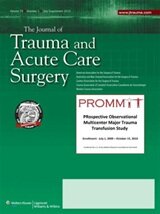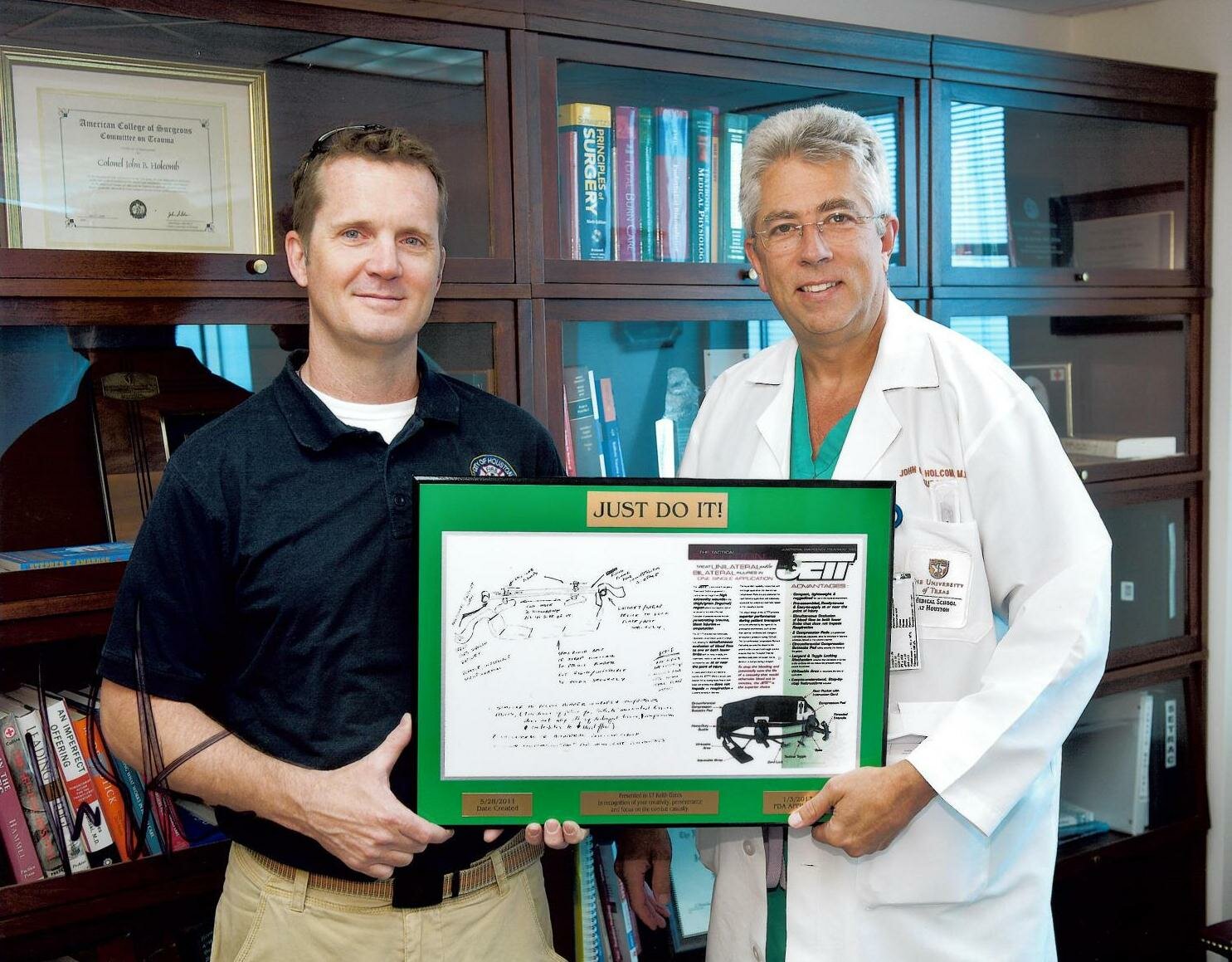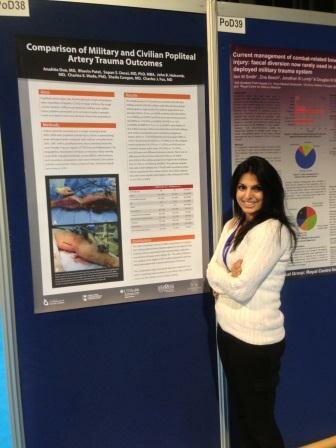Dr. John Holcomb Honored by the University of Arkansas College of Medicine
November 5, 2013 - CeTIR's Director, Dr. John B. Holcomb, was recently honored by th e
e
University of Arkansas's College of Medicine with the 2013 Dean's Distinguished Alumnus Award. Dr. Holcomb earned is medical degree from the University of Arkansas in 1985, and was honored for his outstanding service and contributions to the field of trauma care. The award was presented to Dr. Holcomb by the school's Chancellor, Dr. Dan Rahn, during the College's alumni weekend held in Little Rock. Read More



 To increase public awareness of this globally common deadly disease, the Global Sepsis Alliance with their founding non-profit organizations created September 13th as World Sepsis Day. In honor of this day, the University of Texas MD Anderson Cancer Center’s Sepsis Collaborative held a community event that included informational exhibits, posters, and provided educational material on sepsis. One of CeTIR’s summer research students, Corbin Goerlich, presented a poster at this year event where he won the clinical poster competition. Mr. Goerlich, along with his primary mentor, CeTIR’s Dr. Laura Moore, conducted a prospective observational study to validate the use of a sepsis screening tool in emergency department patients utilizing StO2 measurements. The purpose of this study was to develop a screening tool for early identification of sepsis in the emergency department using readily available triage data. Early identification can lead to earlier treatment and reduced rates of morbidity and mortality. Visit the World Sepsis Day and Sepsis Collaborative websites for more information on sepsis.
To increase public awareness of this globally common deadly disease, the Global Sepsis Alliance with their founding non-profit organizations created September 13th as World Sepsis Day. In honor of this day, the University of Texas MD Anderson Cancer Center’s Sepsis Collaborative held a community event that included informational exhibits, posters, and provided educational material on sepsis. One of CeTIR’s summer research students, Corbin Goerlich, presented a poster at this year event where he won the clinical poster competition. Mr. Goerlich, along with his primary mentor, CeTIR’s Dr. Laura Moore, conducted a prospective observational study to validate the use of a sepsis screening tool in emergency department patients utilizing StO2 measurements. The purpose of this study was to develop a screening tool for early identification of sepsis in the emergency department using readily available triage data. Early identification can lead to earlier treatment and reduced rates of morbidity and mortality. Visit the World Sepsis Day and Sepsis Collaborative websites for more information on sepsis.


 May 3, 2013- Anahita Dua, MD, a CeTIR Trauma Research Fellow, won the best poster prize in the Posters of Distinction session at this year's annual congress for the Association of Surgeons of Great Britain and Ireland. Dr. Dua's project was "Comparison of Military and Civilain Popliteal Artery Trauma Outcomes." Due to differences in injury patterns, Dr. Dua and colleagues compared modern management and outcomes of popliteal artery injuries in civilian and military trauma patients. Dr. Dua reviewed numerous variables between the two groups, including demographics, injury severity, interventions and secondary amputation rates. She was awarded a certificate and cash prize for best poster.
May 3, 2013- Anahita Dua, MD, a CeTIR Trauma Research Fellow, won the best poster prize in the Posters of Distinction session at this year's annual congress for the Association of Surgeons of Great Britain and Ireland. Dr. Dua's project was "Comparison of Military and Civilain Popliteal Artery Trauma Outcomes." Due to differences in injury patterns, Dr. Dua and colleagues compared modern management and outcomes of popliteal artery injuries in civilian and military trauma patients. Dr. Dua reviewed numerous variables between the two groups, including demographics, injury severity, interventions and secondary amputation rates. She was awarded a certificate and cash prize for best poster.